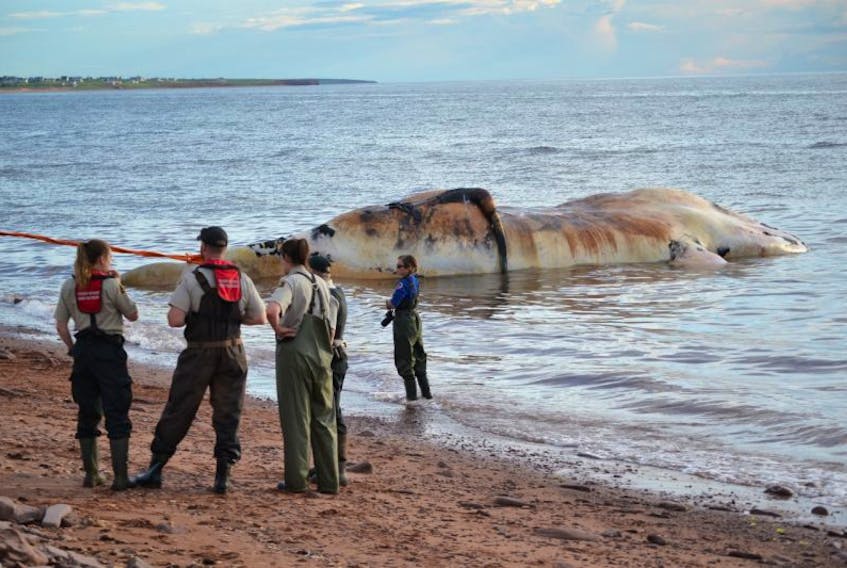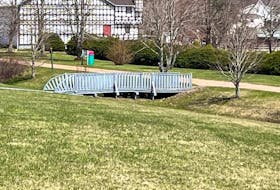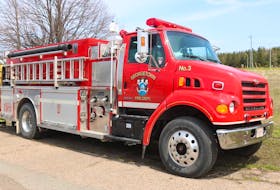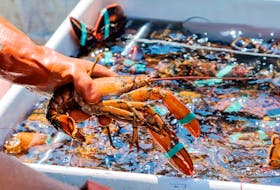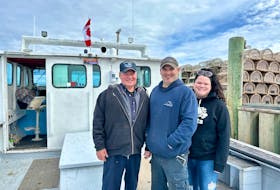
Department of Fisheries and Oceans personnel were swarming the beach Wednesday evening as the body of a whale, found floating in the Gulf of St. Lawrence on June 18 was pulled close to shore by a Fisheries Fast Response Craft and then dragged up the beach by an O’Meara’s Heavy Equipment excavator
Phee Shore is a well-known marine mammal burial location in western P.E.I.

Wednesday’s whale first has to undergo a necropsy – a marine mammal’s version of an autopsy. One or two more whales will be floated there for necropsies as officials are eager to determine what caused six right whales to turn up dead in the Gulf of St. Lawrence, starting with the first such discovery on June 6.
Fisheries and Oceans Canada (DFO) is working with fishery officers, marine mammal scientists, veterinary pathologists, as well as marine animal response networks and organizations to determine what has caused the recent deaths of at least six rare North Atlantic Right whales in eastern Canada,” a departmental statement issued Wednesday evening advised.
The CCGS Corporal McLaren, a midshore vessel, delivered the whale to about a kilometer of the necropsy site and it was then pulled closer to shore by the Alberton-based fisheries patrol vessel S. Dudka and was met by a dory towing the rope lines from the excavator.
The crowd of onlookers grew larger as the whale got closer to shore.
Dr. Pierre-Yves Daoust with the Canadian Wildlife Health Cooperative at the University of Prince Edward Island’s Atlantic Veterinary College will lead the necropsy team. The necropsy could take days to complete and DFO advises the first necropsy could take several days to complete and results might not be known for weeks, or even months.

The six dead whales represent more than one per cent of the world’s population of just 525 (estimated) endangered right whales.
Tonya Wimmer with the Marine Animal Response Society told Canadian Press the process of moving to shore marine mammals that can weigh upwards to 70 tonnes, and already in a state of decomposition, is a slow one.

